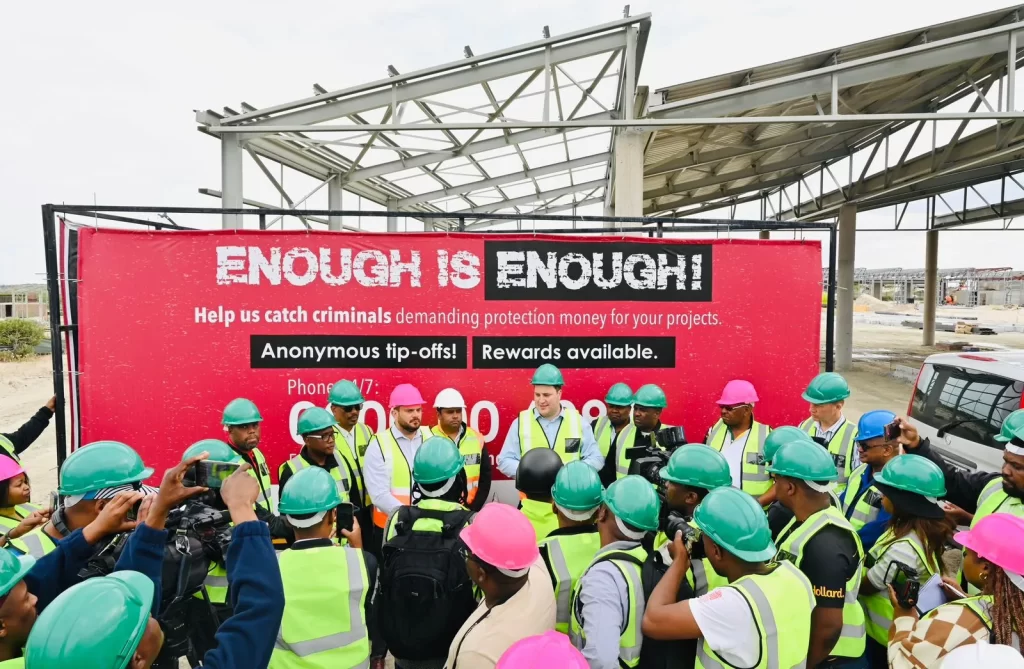The mounting menace of extortion related crimes in Cape Town has reached alarming proportions, prompting the city to launch a comprehensive anti-extortion campaign. While this local initiative is commendable, the conspicuous silence at the national level raises eyebrows about the commitment of higher authorities in tackling this issue.
Cape Town Mayor Geordin Hill-Lewis recently introduced the “Enough is Enough! Genoeg is Genoeg! Kwanele!” campaign. As part of this initiative, a 24-hour hotline has been established to anonymously report any extortion-related crimes. While this is a clear call to action locally, there is a resounding void from national bodies, notably the Crime Intelligence division, which has been markedly passive on the issue.
The foundation of Cape Town’s economy, its construction sector, is being undermined by these extortion crimes. Sites ranging from housing projects in Delft to roadworks in Bishop Lavis have faced disruptions, delays, and even violent crimes, including murder. Mayor Hill-Lewis revealed that the city’s projects worth billions have suffered due to criminal activities. The impact is far-reaching, with some tenders even failing to attract bidders, fearing they’d be the next extortion target.
What makes this scenario even murkier are the ties that hint at deep-seated corruption within the administration itself. An investigation earlier this year unveiled links between alleged gang boss Ralph Stanfield and city councillor Malusi Booi, casting a cloud over the transparency of Cape Town’s governance.
Despite these challenges at the grassroots level, the question remains: Why is there an evident lack of initiative from the national government to join forces against this growing menace? The scant enthusiasm displayed by Crime Intelligence and other national bodies only fuels skepticism regarding their intentions and capabilities.
Mayoral Committee Member for Safety and Security, JP Smith, indicates that the city is gearing up to tackle this head-on, hinting at impending arrests related to the so-called construction mafia. But while Cape Town mounts its defense against extortionists, it remains to be seen when and if the national echelons will rise to join the battle.
In this complex tapestry of crime, political intrigue, and economic ramifications, the fate of Cape Town’s construction sector hangs precariously. With millions at stake, both in terms of money and the city’s reputation, the need for a unified front, bridging local and national interests, has never been more pressing.
